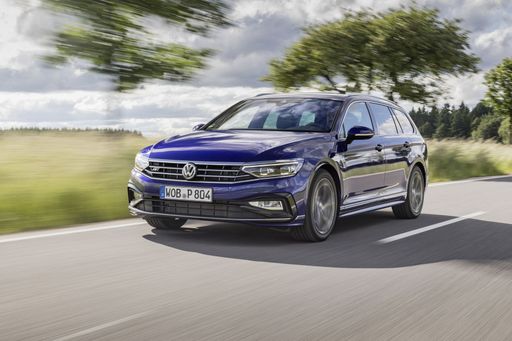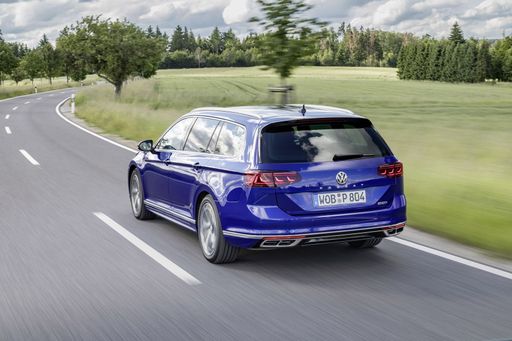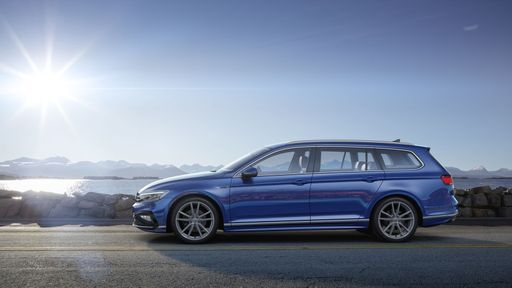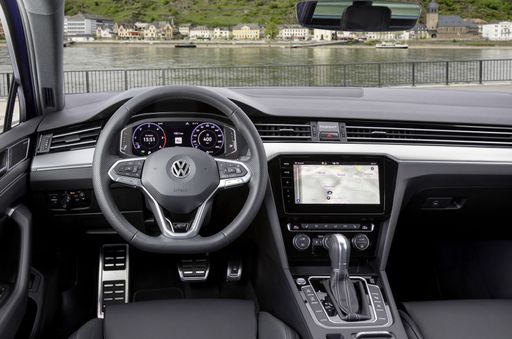Toyota Yaris Cross vs VW Passat - Differences and prices compared
Compare performance (130 HP vs 272 HP), boot space and price (23700 £ vs 36500 £ ) at a glance. Find out which car is the better choice for you – Toyota Yaris Cross or VW Passat?
Costs and Efficiency:
Price and efficiency are often the first things buyers look at. Here it becomes clear which model has the long-term edge – whether at the pump, the plug, or in purchase price.
Toyota Yaris Cross has a clearly advantage in terms of price – it starts at 23700 £ , while the VW Passat costs 36500 £ . That’s a price difference of around 12771 £.
Fuel consumption also shows a difference: VW Passat manages with 1.20 L and is therefore decisively more efficient than the Toyota Yaris Cross with 4.50 L. The difference is about 3.30 L per 100 km.
Engine and Performance:
Under the bonnet, it becomes clear which model is tuned for sportiness and which one takes the lead when you hit the accelerator.
When it comes to engine power, the VW Passat has a decisively edge – offering 272 HP compared to 130 HP. That’s roughly 142 HP more horsepower.
In acceleration from 0 to 100 km/h, the VW Passat is significantly quicker – completing the sprint in 5.80 s, while the Toyota Yaris Cross takes 10.70 s. That’s about 4.90 s faster.
In terms of top speed, the VW Passat performs evident better – reaching 250 km/h, while the Toyota Yaris Cross tops out at 170 km/h. The difference is around 80 km/h.
Space and Everyday Use:
Cabin size, boot volume and payload all play a role in everyday practicality. Here, comfort and flexibility make the difference.
Both vehicles offer seating for 5 people.
In curb weight, Toyota Yaris Cross is clearly perceptible lighter – 1180 kg compared to 1573 kg. The difference is around 393 kg.
In terms of boot space, the VW Passat offers convincingly more room – 690 L compared to 397 L. That’s a difference of about 293 L.
In maximum load capacity, the VW Passat performs clearly better – up to 1920 L, which is about 823 L more than the Toyota Yaris Cross.
When it comes to payload, VW Passat slightly takes the win – 577 kg compared to 510 kg. That’s a difference of about 67 kg.
Who comes out on top?
Overall, the VW Passat shows itself to be leaves the rival little chance and secures the title of DriveDuel Champion.
It convinces with the more balanced overall package and proves to be the more versatile choice for everyday use.

VW Passat
Costs and Consumption
View detailed analysis
Engine and Performance
View detailed analysis
Dimensions and Body
View detailed analysis
Toyota Yaris Cross
The Toyota Yaris Cross takes the jaunty personality of the Yaris and gives it a taller stance and a bit more practicality, so you get city-friendly agility with added SUV presence. It’s easy to live with, economical on the daily grind, and smartly packaged — a sensible pick for buyers who want fuss-free transport with a touch of character.
details






VW Passat
The VW Passat is the grown-up family car that gets the basics absolutely right — roomy, comfortable and built to handle weekday commutes and weekend getaways without fuss. It won't set your pulse racing, but its calm composure and sensible packaging make it boring in the best possible way: a dependable, no‑drama choice for buyers who value practicality over flash.
details



Costs and Consumption |
|
|---|---|
|
Price
23700 - 34300 £
|
Price
36500 - 58500 £
|
|
Consumption L/100km
4.5 - 4.8 L
|
Consumption L/100km
1.2 - 8 L
|
|
Consumption kWh/100km
-
|
Consumption kWh/100km
-
|
|
Electric Range
-
|
Electric Range
124 - 135 km
|
|
Battery Capacity
-
|
Battery Capacity
19.70 kWh
|
|
co2
101 - 108 g/km
|
co2
28 - 181 g/km
|
|
Fuel tank capacity
36 L
|
Fuel tank capacity
45 - 66 L
|
Dimensions and Body |
|
|---|---|
|
Body Type
SUV
|
Body Type
Estate
|
|
Seats
5
|
Seats
5
|
|
Doors
5
|
Doors
5
|
|
Curb weight
1180 - 1290 kg
|
Curb weight
1573 - 1858 kg
|
|
Trunk capacity
320 - 397 L
|
Trunk capacity
510 - 690 L
|
|
Length
4180 mm
|
Length
4917 mm
|
|
Width
1765 mm
|
Width
1849 mm
|
|
Height
1595 mm
|
Height
1521 mm
|
|
Max trunk capacity
1097 L
|
Max trunk capacity
1770 - 1920 L
|
|
Payload
485 - 510 kg
|
Payload
501 - 577 kg
|
Engine and Performance |
|
|---|---|
|
Engine Type
Full Hybrid
|
Engine Type
Petrol, Petrol MHEV, Diesel, Plugin Hybrid
|
|
Transmission
Automatic
|
Transmission
Automatic
|
|
Transmission Detail
CVT
|
Transmission Detail
Dual-Clutch Automatic
|
|
Drive Type
Front-Wheel Drive, All-Wheel Drive
|
Drive Type
All-Wheel Drive, Front-Wheel Drive
|
|
Power HP
116 - 130 HP
|
Power HP
122 - 272 HP
|
|
Acceleration 0-100km/h
10.7 - 11.3 s
|
Acceleration 0-100km/h
5.8 - 10.7 s
|
|
Max Speed
170 km/h
|
Max Speed
212 - 250 km/h
|
|
Torque
-
|
Torque
250 - 400 Nm
|
|
Number of Cylinders
3
|
Number of Cylinders
4
|
|
Power kW
85 - 96 kW
|
Power kW
90 - 200 kW
|
|
Engine capacity
1490 cm3
|
Engine capacity
1498 - 1984 cm3
|
General |
|
|---|---|
|
Model Year
2024 - 2025
|
Model Year
2024 - 2025
|
|
CO2 Efficiency Class
C
|
CO2 Efficiency Class
G, D, E, B
|
|
Brand
Toyota
|
Brand
VW
|
Is the Toyota Yaris Cross offered with different drivetrains?
Available configurations include Front-Wheel Drive or All-Wheel Drive.




